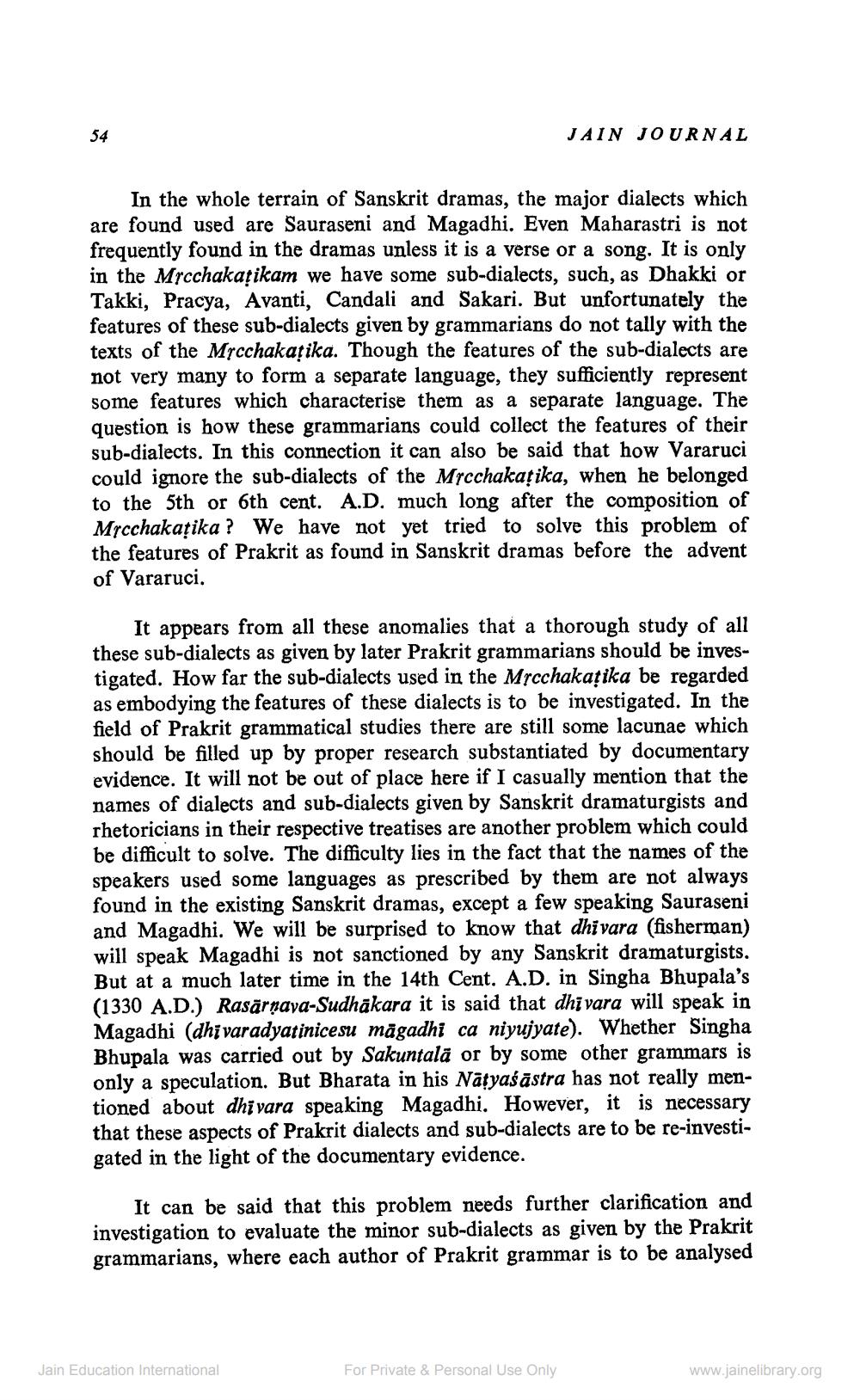________________
3
54
In the whole terrain of Sanskrit dramas, the major dialects which are found used are Sauraseni and Magadhi. Even Maharastri is not frequently found in the dramas unless it is a verse or a song. It is only in the Mrcchakatikam we have some sub-dialects, such, as Dhakki or Takki, Pracya, Avanti, Candali and Sakari. But unfortunately the features of these sub-dialects given by grammarians do not tally with the texts of the Mrcchakatika. Though the features of the sub-dialects are not very many to form a separate language, they sufficiently represent some features which characterise them as a separate language. The question is how these grammarians could collect the features of their sub-dialects. In this connection it can also be said that how Vararuci could ignore the sub-dialects of the Mrcchakatika, when he belonged to the 5th or 6th cent. A.D. much long after the composition of Mrcchakatika? We have not yet tried to solve this problem of the features of Prakrit as found in Sanskrit dramas before the advent of Vararuci.
JAIN JOURNAL
It appears from all these anomalies that a thorough study of all these sub-dialects as given by later Prakrit grammarians should be investigated. How far the sub-dialects used in the Mrcchakaṭika be regarded as embodying the features of these dialects is to be investigated. In the field of Prakrit grammatical studies there are still some lacunae which should be filled up by proper research substantiated by documentary evidence. It will not be out of place here if I casually mention that the names of dialects and sub-dialects given by Sanskrit dramaturgists and rhetoricians in their respective treatises are another problem which could be difficult to solve. The difficulty lies in the fact that the names of the speakers used some languages as prescribed by them are not always found in the existing Sanskrit dramas, except a few speaking Sauraseni and Magadhi. We will be surprised to know that dhivara (fisherman) will speak Magadhi is not sanctioned by any Sanskrit dramaturgists. But at a much later time in the 14th Cent. A.D. in Singha Bhupala's (1330 A.D.) Rasārṇava-Sudhakara it is said that dhivara will speak in Magadhi (dhivaradyatinicesu māgadhi ca niyujyate). Whether Singha Bhupala was carried out by Sakuntala or by some other grammars is only a speculation. But Bharata in his Natyaśāstra has not really mentioned about dhivara speaking Magadhi. However, it is necessary that these aspects of Prakrit dialects and sub-dialects are to be re-investigated in the light of the documentary evidence.
It can be said that this problem needs further clarification and investigation to evaluate the minor sub-dialects as given by the Prakrit grammarians, where each author of Prakrit grammar is to be analysed
Jain Education International
For Private & Personal Use Only
www.jainelibrary.org




